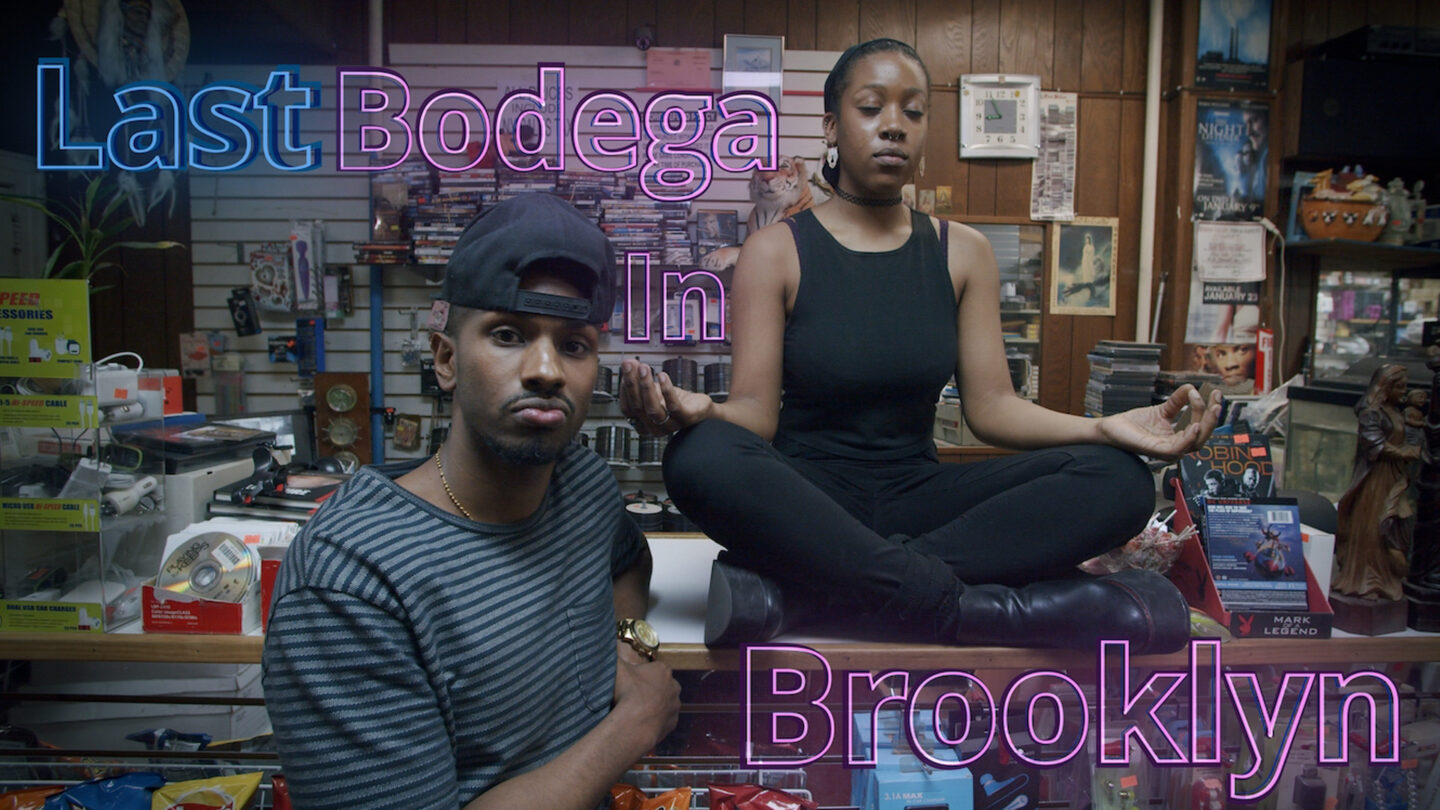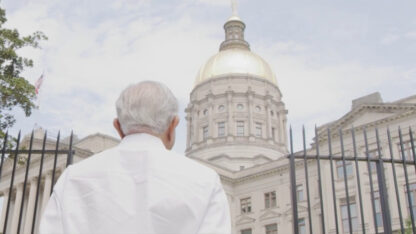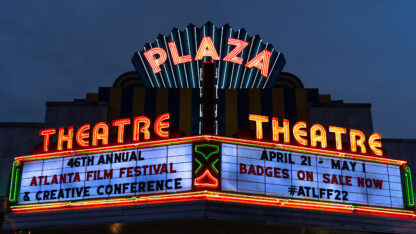The annual Atlanta-based Bronzelens Film Festival spotlights BIPOC filmmakers, directors, and actors, both locally and around the globe.
After a week of screenings, workshops and celebrations, the winners were announced, including “The Last Bodega in Brooklyn,” directed by Mosiah Moonsammy, which was named “Best Web Series.”
The New York City filmmaker joined “City Lights” host Lois Reitzes via Zoom to talk about the story of a sibling-run bodega in Crown Heights he helped bring to life.
Interview highlights follow below.
On growing up around Brooklyn bodegas and gentrification:
“My connection to bodegas is something that I’ve experienced throughout my life. So I’m actually originally from Florida, but my family’s from Brooklyn. So I’ve been coming up to Brooklyn throughout the course of my whole entire life, and one of the things I would always do with my cousins when we would go out is we’d always go to the bodega. And I just thought it was a really… special thing, because they knew the bodega owner. They’d be like, ‘Hey, what’s up,’ and then they would get something, and I never had that experience at a grocery store.”
“When I saw the first change in the neighborhood, I got really excited, because I saw a new building,” said Moonsammy. “When I see the first new coffee shop, and the first new X, Y, and Z coming to the neighborhood, I’m excited because I’m seeing changes in the neighborhood that seem positive. Now, I’m a kid, so I can’t really fully understand what’s happening, but when I see the new building and I see the new coffee shop, I notice that my family, and people that are reflective of my family, are not in these places. They’re not in the new buildings, they’re not in the coffee shop. And so that excitement turned into confusion, and confusion turned into anger.”
Building characters based on real-life Brooklynites:
“There’s a character in the show called OG Gu, and that’s actually a very close friend of mine who is Guru Singh, and I wrote him very much how he is. Guru has this, like, if you took like DMX and Sadhguru and they had a baby, that would be Gu; very raw and crazy and super spiritual, and I just love his energy, and I love how he moved. So I wrote specifically very much around him, and yes, in the creation of that, I did that as well with my actors. My actors are people that I’ve worked with for years, some of them five, six-plus years, and I’ve worked with the same group of people. Not only do I draw from who they are, but also their interests and expansion as artists.”
How bodegas kept New York City going during the pandemic:
“The bodegas were like the saviors of New York during the pandemic, and a lot of people don’t know this,” said Moonsammy. “It literally felt like the apocalypse was about to happen. Thousands and thousands, I think it was between 30 to 40,000 people left the city at the height of the pandemic. Obviously everything was shut down…. The people that were open and helping and doing so much extra work were the bodega owners, because not only did they have a personal connection tied to all the neighborhoods that they’re in, but… like, toiletry items became gold during the pandemic, and the bodega owners stayed open and kept on trying to find whatever supply chain they could get.”
He went on, “Not only did they stay open, but these men and women that own and run these bodegas really were, and truly, I truly believe, essential workers that we never gave any level of love…. They were, essentially, leaders in the community without being even noticed for taking chances with their life.”
More on Mosiah Moonsammy’s “The Last Bodega in Brooklyn” film series can be found at https://lastbodegainbrooklyn.com/








